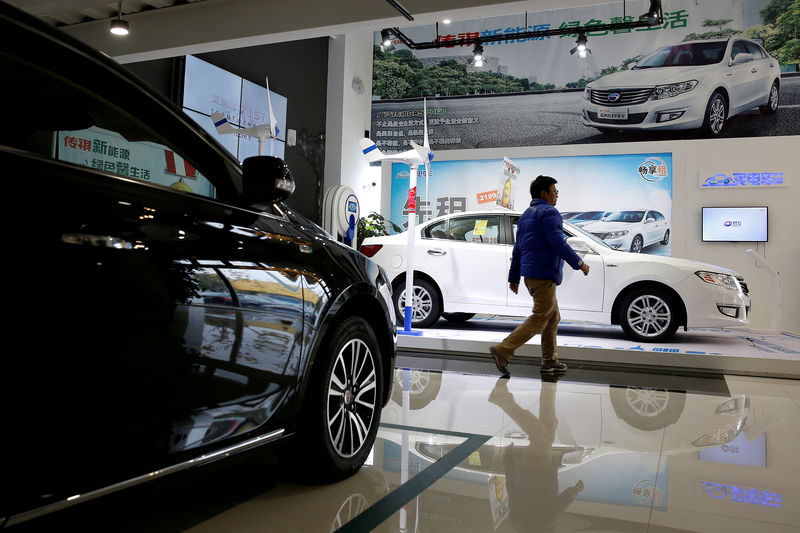By Michael Martina and Norihiko Shirouzu
BEIJING (Reuters) - China upheld strict sales quotas for electrically powered vehicles in a draft regulation issued on Tuesday, ignoring concessions agreed between Chinese Premier Li Keqiang and German Chancellor Angela Merkel earlier this month.
The draft, posted on the website of the Legislative Affairs Office for China's cabinet, maintains that automakers must sell enough electric or plug-in hybrid vehicles to generate "credits" equivalent to 8 percent of sales by 2018, 10 percent by 2019 and 12 percent by 2020 - criteria many in the industry deem too ambitious.
The number of credits per car is based on the level of electrification.
Merkel and Li did not give specifics on June 1 when stating that China would make concessions on the quotas, but industry sources told Reuters the two leaders had agreed to delay the 8 percent requirement to 2019 and allow automakers that missed the quota in early years to make up for it later on.
The latest draft by China's Ministry of Industry and Information Technology, open for public comment until June 27, is largely unchanged from one issued in September, with no change to the timings.
Dominik Declercq, China representative for the European Automobile Manufacturers Association, said the new draft indicated China had not changed its stance on the policy.
"That's what it looks like: no compromise, no concession," Declercq told Reuters.
German Ambassador to China Michael Clauss said: "It seems that the political leadership has understood that this is a problem but there seems to be a disconnect between them and the working level at MIIT."
China has been pushing to get more electric vehicles on its roads as soon as possible in order to fight urban air pollution but automakers and industry bodies have said the targets are too tough, while German policymakers say they fear they are part of a Chinese strategy to help domestic carmakers overtake global rivals in developing 'green' vehicles.
The quotas would come on top of stricter fuel economy requirements that are set to gradually become among the world's toughest by 2020.

The quota proposals had met with requests by carmakers such as Volkswagen AG (DE:VOWG_p) to be given more time to meet them, although VW's management has said it is prepared to comply with the 2018 quota if the government insisted.